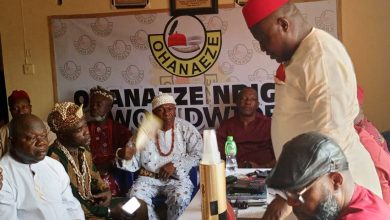
Operation Positive Identification (OPI) by the Nigerian Army intended to fish out alien fighters and terrorists believed to have infiltrated the public commenced last Friday in spite of the heavy criticisms and efforts by the National Assembly and human rights groups to halt the exercise.
It seems once again that the public is pitched against the Army on the issue of security thereby raising a lot of concern for well-meaning Nigerians. The simmering collision course between the public and the Army over the operation, running from November 1 to December 23, is likely to jeopardise national interest at the end of the day.
The National Assembly, human rights and civil organisations as well as pan regional groups such as Arewa Youths from the North, Afenifere of the Nouth West and Pan Niger Delta Elders’ Forum (PANDEF) from the Niger Delta region have openly kicked against the OPI.
But there is need for the public to take a second critical look at the issue once again.
Terrorism is on the rise and spreading across the world at an alarming rate. About a decade ago terrorism was merely news from abroad to Nigerians who then saw the menace as light years away. But today it is here and has taken a foothold. In fact, it is a global threat to all nations. Terrorism has become an international network spreading across the world with undefined borders.
Since the September11, 2001 attacks on the United States, the world has woken to the realities of the new warfare and out-of -the blues tactics of terrorism. From Al-Qaeda to Al-Shabab to the Islamic State in Levante (ISSL) and to Boko Haram, insurgency is taking on new and sophisticated approaches in spreading terror and extermination of lives.
Although there had always been occasional sectarian insurrections here and there such as the Maitasine attacks of 1981 in Sokoto and 1983 in Yola which the security forces usually contain in no time, never has the nation witnessed such terror as being perpetrated by Boko Haram.
The scorch-earth methods of the Islamist terrorists have engulfed a greater part of West Africa and breeding other forms of criminalities now causing wanton loss of lives. Like a hydra- headed monster, insurgency in the North East is creating rooms for allied crimes of banditry, kidnappings, cattle rustling and herdsmen attacks.
But Nigerians, for once, need to praise the gallantry of the Nigerian Army to have contained the insurgency and substantially decimated Boko Haram. In the face of imminent defeat, remnants of the Islamist fighters must have melted into the populace with the aim of regrouping to launch attacks on soft targets and causing widespread carnage.
It is strongly believed that the Army is setting out on OPI based on intelligence collated about the fleeing Boko Haram fighters who still remain a threat to the unsuspecting public. As long as the fighters have not laid down their weapons or renounced their radicalisation, they will always metamorphose into other threats to security.
While nearly all pressure groups in the country have rejected OPI, the Army has taken the pains to explain the modus operandi that the exercise will be limited to only the three geopolitical regions of the north.
It is argued in some quarters that it is the statutory duty of the Immigration Service and the Internal Affairs Ministry and not the Army to handle citizen identification. There are strong fears that the Army will largely infringe on the rights of many in the conduct of the exercise. But the Army has sought to assure the public that it has sorted out all grey areas likely to arise from the operation.
Naturally it is strange for the Army to embark on OPI. But these are strange and perilous times that demand strange measures to tackling them.
With the upsurge in terrorism many nations have had to create counter-terrorism measures most of which are seen as infringements on human rights. For example, the US in the aftermath of 9/11 created the Department of Homeland Security which some strongly criticised as eroding their liberties. At a point in the fight against terrorism, the army was called out severally to the streets of many developed nations of late.
Incidentally, rights and civil liberty groups have been loudest in criticising most counter-terrorism measures around the world. But such measures have become bitter pills that must be swallowed.
OPI should therefore be seen as a necessary evil. Nigerians should realise that issues of security must not be toyed with.
The operation will bring about an unusual interface between the public and the Army at many road check points in the North with likely attendant inconveniences such as traffic hold-ups, delayed journeys and sometimes manhandling of a few uncooperative members of the public.
But as already said the OPI is a necessary evil to sift the public of infiltrators and we can only pray it goes according to plan.
It is bitter pill and necessary evil.




